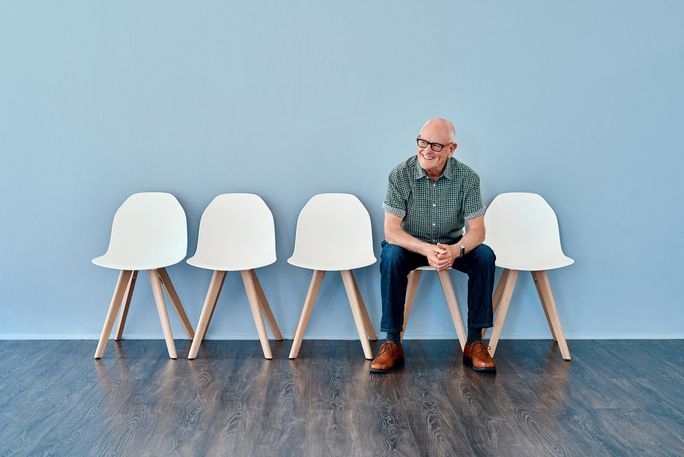Loving Your Neighbor in the Age of Coronavirus
Coronavirus is currently changing daily life for everyone. To younger people, it can seem like a big frustrating overreaction. But here’s another perspective to consider.

The coronavirus pandemic has impacted all of our lives. We’ve all had to make sacrifices—and possibly will have to make more in the future—as our world struggles to find its way through this global crisis.
Sacrificing for others
The COVID-19 disease will likely have little effect on you—even if you contract it. So the sacrifices you make, the inconveniences you endure, are not really for you.
The greatest danger to human life this disease poses is to older people, senior citizens with whom you may have very little contact on a daily basis.
As one of those seniors (I’m in my 70s), I’d like to offer a different perspective on the current crisis. It seems true that younger people who contract the virus have relatively mild symptoms, and in some cases may not even realize they are infected.
Overreaction to a virus no worse than the flu?
Many people, especially those with little or no medical training, have cited the relatively low death rate among younger people to say that this virus is really no worse than the common flu.
If that were the whole story, they might have a valid point. We could even cite the number of deaths worldwide from the virus as further proof of its limited severity, though those figures are changing so rapidly that it’s hard to make any argument from them at this point.
It’s easy to understand why a young, healthy person (with little to fear) would feel frustrated with all of the current restrictions on normal life we are facing because of this pandemic. Limiting entertainment, sports, recreation, dining out, and many other social events seems like an overreaction for such a mild disease.
Seeing faces, not numbers
The perspective I wish to offer is a little different. I am not young and healthy any longer. While the World Health Organization has put the overall mortality rate for those contracting the disease at 3.4 percent globally, in my demographic, the fatality rate is around 8 percent. That means for every dozen 70-something people who contract this easily transmissible disease, one will die. (A recent report says the fatality rate is 3.6 percent for those between the ages of 60-69, but 14.8 percent for those over 80.)
If one out of 12 is going to die from this disease over the next few months, I’m not losing numbers, I’m losing friends.
When I consider that figure, I honestly don’t see numbers. I see faces. I hear names. I could easily list several dozen people who are my friends and family who are in that demographic—my wife, my in-laws, many of the friends I have had since the days when we were young and healthy together.
If one out of 12 is going to die from this disease over the next few months, I’m not losing numbers, I’m losing friends. I’m losing a part of my life. For all I know, it may be my name that gets listed among the casualties before this pestilence has run its deadly course.
Here’s the point: If everyone makes the sacrifices today, some of those lives may be saved tomorrow. Perhaps it can help us to put names and faces on those lives instead of numbers. Whose life could you save by your sacrifices today?
“Love your neighbor” in the age of coronavirus
What we are seeing in all of this is the operation of an ancient principle, often ignored or minimized in modern society. In the Bible, God is recorded as telling His people to “love your neighbor as yourself” (Leviticus 19:18).
Are we just “believers”—as long as that belief doesn’t inconvenience us or hinder our ability to do what we want, when we want?
The same instruction is quoted seven times in the New Testament. In addition to Jesus’ statements, the apostle Paul says that phrase summarizes the entirety of God’s law (Galatians 5:14). James refers to this principle as “the royal law” (James 2:8).
Throughout history, “love your neighbor as yourself” has always been easier said than done. What about when your neighbor is not so nice? What if he or she doesn’t look like you or sound like you or believe like you? What about when you don’t even know your neighbors? What about when they are just statistics in a news story?
That’s when loving your neighbor becomes a test of what we really are. Are we genuine followers of Jesus Christ and His Word? Or are we just “believers”—as long as that belief doesn’t inconvenience us or hinder our ability to do what we want, when we want?
You probably don’t know me, but: I’m the neighbor.
I’m part of the population that is threatened with an 8 percent death rate. I’m older and much more vulnerable than I would like to be, and I’m in need of your willingness to sacrifice your convenience to give me a better chance to survive this crisis.
Thank you for your sacrifices
To those of you diligently doing that: On behalf of all us 70-somethings, thank you. Your sacrifice means more than you will ever know.
And if you happen to be one of those complaining because of the current limits this has posed to your freedom, well, this may be the big test of whether your belief and character are genuine or just a nice slogan. I believe it’s clear what your response should be, but that choice is still entirely yours.
To learn more about how to “love your neighbor as yourself,” read “How to Be a Good Neighbor.”
Date Posted: March 19, 2020

